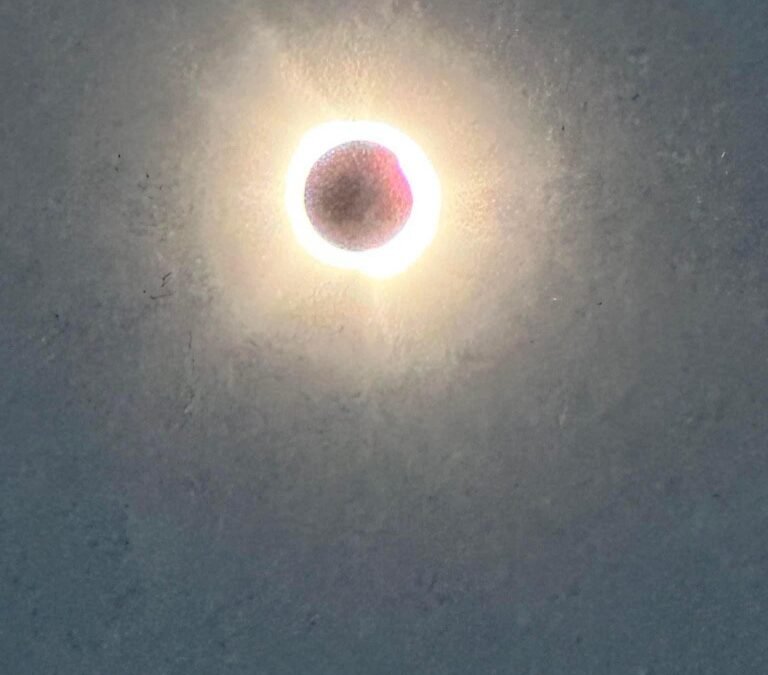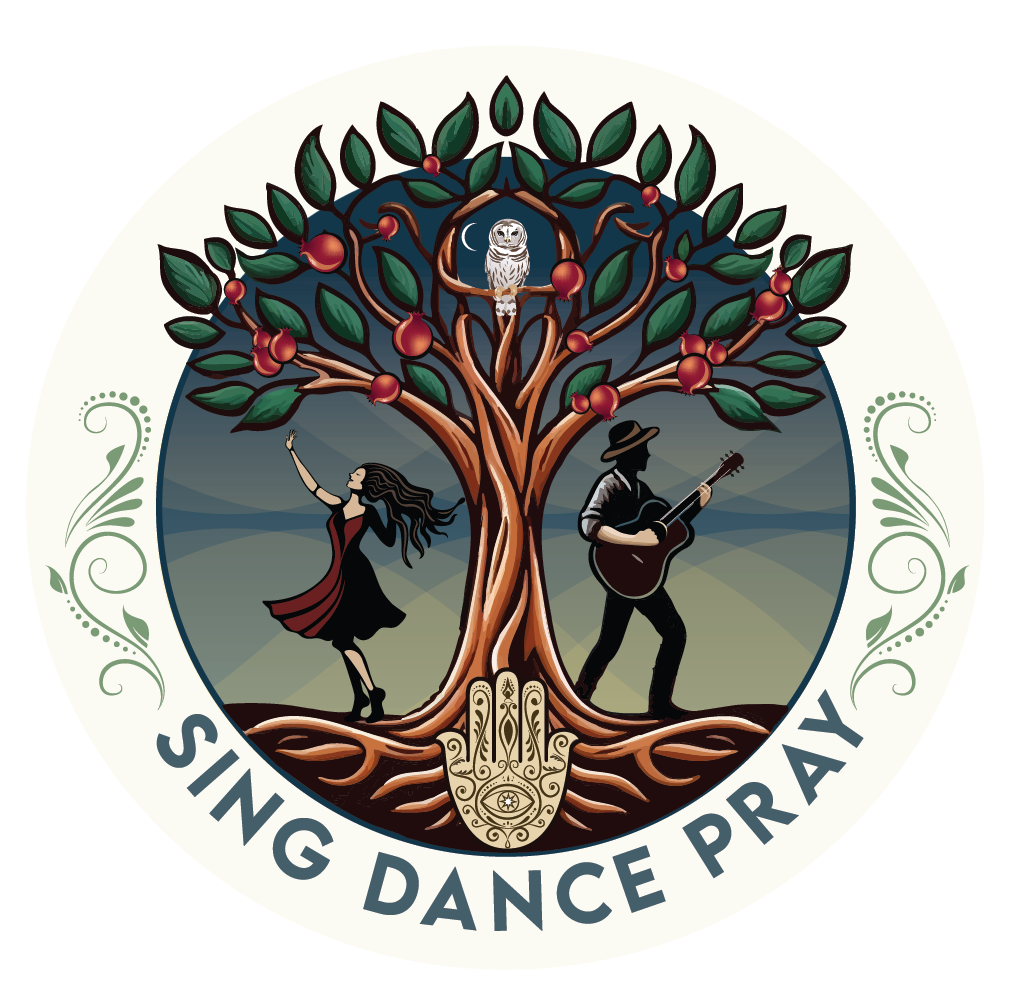Yesterday was the funeral of Hersh Goldberg-Polin in Jerusalem.
My broken heart needed to hear the words of his deeply wise and courageous parents in order to properly bless his neshama’s/soul’s aliyah, its ascent. I also needed to bless the body that once held his soul: the tender body his mother and father once cradled in their arms, the body that will never hold its own child, as it was lowered into the dark earth.
To listen in privacy and sanctuary, I went into my garden, as I often do when I need to confront difficult truths in our culture. I have a whole patch of blackberries I cleared when George Floyd was murdered, the huge compost pile I moved on the day Roe v. Wade was overturned—and yesterday, the entire garden received heavy buckets of rich soil as I listened to Hersh’s funeral, linking my soul to his and to his family’s.
My arms and back strained with each bucket, as the Hebrew words of the speakers before Hersh’s parents carried me into an ancient and living field.
Then came Rachel Goldberg-Polin’s voice—a voice that has become familiar over these last eleven months of her relentless activism for her precious son and for all the hostages taken on October 7th. I kept trying to spread the compost—decayed leaves, straw, food scraps—onto the place I planned for the Hersh Goldberg-Polin memorial strawberry garden. But as Rachel spoke, I felt her words in my body as if they were my own. I stopped raking and stood still.
Just beyond the sliding glass door, my own son Jonah—a beautiful, gangly fourteen-year-old with dark eyes and thick curls—was laughing with a friend. His laughter reverberated through me, stirring the memory of thousands of times I have carried, held, and moved his body: to the bath, to bed, to the table, to the car, on walks. Before that, I had grown his body inside my own—blood shared, cells migrating, his nervous system forming in the field of my body.
The body is the way we, as mothers, profoundly experience our children.
Our bodies create the food our babies need to survive. Did you know a mother’s nipples take in her baby’s saliva, which signals exactly what the child needs—antibodies, magnesium, proteins—and the milk changes accordingly? The mother’s body forms the child’s body, tends it, feeds it, comforts it, regulates it. Every cell in us is wired to protect our child’s body, to cherish it, to marvel at it. The greatest grief is knowing we will never again touch that body.
Rachel said,
“I will love and miss you every day of my life. Now I will have to learn how to love you from here, in a different way.”
Her words pierced my heart. I leaned on my rake and sobbed, tears salting the dark soil where the strawberries would be planted.
She is right—she will find a way to love Hersh still.
In Jewish tradition, there are ways to connect with those who have shed their earthly bodies—ways to bridge communication with our ancestors. Many Indigenous cultures share these practices, but in modernity, most of us are far removed from them.
To love your own child as an ancestor is not the weight of their head leaning against you in the grass, or the brush of tiny fingers against your hair, or the joy of their smile, their quirky food preferences, your long car conversations about life, or the laughter you share over something absurd.
Then Jon Polin spoke.
In the tender timbre of his voice was more than words could carry. He recounted, with exhaustion and love, what he had learned from his only son. Then, with strength, he said:
“Hersh, we failed you. We all failed you. You would not have failed you—you would have pushed harder for justice, worked to understand the other, bridged differences, challenged people to challenge their own thinking. You would want us now to ensure that your death, and the deaths of so many soldiers and innocent civilians, are not mashav—not in vain.”
His voice broke into tears.
“He was a great guy.”
In his voice, I heard my own husband’s, and felt the fathomless depth of a father’s love.
G-d, how deeply we love our children. Through them, a thousand ancestors gaze at us, and we gaze back.
Oh, Hersh—you and your five companions died in a tunnel at the hands of terrorized terrorists, as the army tried to rescue you. For you, and for all of us, I dream of a better world. These tears in the soil are my small offering.
I am grateful for them; lately, my heart has felt numb. Bearing witness to human brutality has driven me behind inner fences. How much can a heart bear? Truly—how much?
What if every parent of the 38 children killed on October 7th, and of the 14,500 children killed in Gaza since, had a microphone and time to speak? If we were all made to sit and listen—heart after heart breaking, each voice telling of the beauty of their child and the unbearable knowledge that they will never touch them again—would we finally say: No more war. Not one more bomb. Not one more bullet. Not one more day of oppression, starvation, dispossession?
Or would we still believe violence makes the world safer?
Yesterday, Hersh’s funeral was not the only one. The parents of Almog also buried their son. His mother spoke:
“Almog, my dear son, how much hope we had to see you again, to hug you, to enjoy your smile. But on October 7 you were forgotten, and you have been neglected every day, every hour, for the last 331 days. You were sacrificed for ‘destroying Hamas,’ for ‘Rafah,’ for the ‘Philadelphi Corridor’—you and so many other beautiful souls. Enough! No more! We paid the worst price. I pray we will be the last. From now on, please, only a deal to get the hostages back!”
Two sets of parents. Two pairs of broken souls. How many more?
All day, tears have come and gone. I thank these families for their courage, their love, and their unflinching truth—offering us a lens into how deeply our fates are bound together.
Later that afternoon, coffee in hand, I felt the need to write—to capture the day and offer something helpful, even if only as a balm for my own heart. My son bounced out of his room.
“What’re you doing right now? Are you busy? Can you take me to Best Buy?”
He loves that store the way an artist loves an art supply shop, the way I love a plant nursery—wandering aisles, touching, imagining. At Best Buy, he lingers over laptops, reading specs aloud, weighing pros and cons, talking to me and to himself.
It reminds me of when he was four, transfixed by the Thomas the Train display at the toy store—deliberating for an hour between Percy and Hiro, asking my opinion, then returning to his own careful process. I didn’t care which one he chose, but I cared about sharing that moment with him.
Oh, I love my boy. I love the parts of him I relate to—wordplay, metaphysics—and the parts I don’t—Thomas the Train, laptop specs. I love witnessing his unfolding, learning through him about humanity, beauty, justice, and my own limits and capacity to love.
So I said I wasn’t busy. We went to Best Buy. On the 20-minute drive, he asked questions—about food additives, cancer, legality. Then he smiled:
“I love our trips to Best Buy together.”
I love them too, my boy. I will take not one minute for granted. I will press my face into your curls, hug you from behind, breathe you in and never exhale.
Believe me: every child is as beautiful and precious as mine, as Hersh, as Almog, as every child buried under Gaza’s rubble, as your own child.
Every single one.
Are we listening?

